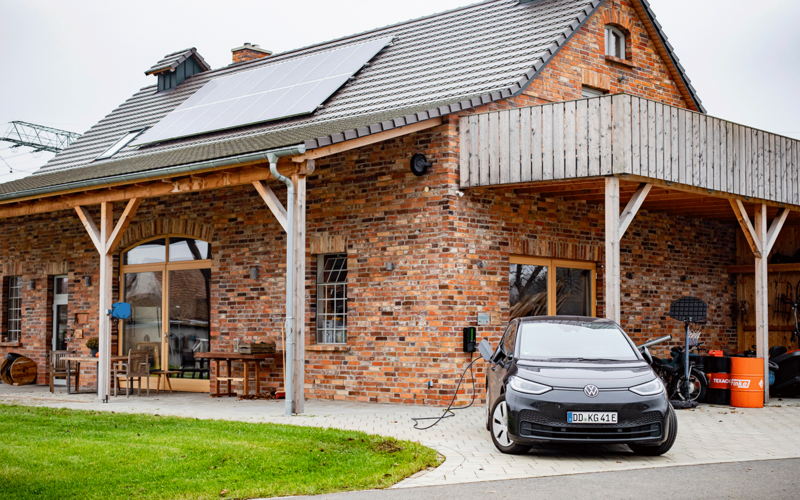At the end of November 2022, the time finally came: the Federal Network Agency (German: Bundesnetzagentur or BNetzA) published a long-awaited key issues paper on the grid-oriented regulation of controllable consumption devices. The paper is an important step on the way to regulating §14a of the Energy Industry Act.
The current consultation process on the proposals of the Federal Network Agency is the provisional conclusion of a stalemate that has been going on for almost two years. Shortly before Christmas 2020, an amendment to Section 14a of the Energy Industry Act was submitted for consultation, - but this was halted shortly afterwards by the then CDU Federal Minister of Economics, Peter Altmaier, and the proposal was withdrawn completely. After that, news of a new regulation went quiet – and remained so for a long time despite various other announcements.
Since July 2022, the Federal Network Agency has now been tasked with driving forward the amendment. This is important because controllable consumption devices are an integral part of making the energy transition a success. If heat pumps and EV chargers are used in a manner that serves the grid, true sector coupling will be achieved. In addition, intelligent control of grid connections offers great potential for the power grid, as this allows flexibility in consumption to be used in both congestion and surplus situations. This leads to fewer grid bottlenecks, as well as more favorable electricity prices and grid charges - a win-win situation for all parties involved.
A new regulation is in sight
The Federal Network Agency's key issues paper is an important step toward finally establishing clarity in regulation and a reliable framework. This intention to create uniform regulations throughout Germany is to be applauded. Until now, for example, reduced network charges have depended on the respective local network operator. For consumers, this was unclear and not very user-friendly. In addition, uniform federal regulations are a good breeding ground for solutions based on controllable consumption devices. The convergence of electricity, heat and mobility is thereby strengthened further.
Daring to be more market-driven and flexible
However, the key issues paper also has room for improvement. We consider the following points to be of central importance:
Firstly, the draft focuses on the disconnection of controllable consumption devices, but does not propose any regulations or incentives for grid-serving consumption. Section 14a of the Energy Act was drafted in the spirit of using electricity in a way that is as beneficial to the grid as possible. Grid efficiency can also be achieved, for example, by charging the battery of an electric car during times of excess electricity supply. Incentivized by price signals, users could adjust their electricity consumption variably and thereby proactively prevent bottlenecks in the distribution grid. At the same time, this would prevent expensive grid expansion or shutdowns.
For us, avoiding an intervention in an energy system is always better than the actual intervention. This requires incentives to encourage appropriate behavior. Unfortunately, the Federal Network Agency's paper does not take sufficient account of time-variable network charges. This could be used to postpone the charging of electric cars to times when the price of electricity is cheaper. Grid congestions and control interventions would be avoided.
Secondly, we are critical of the fact that the draft makes individual control of consumers greaterthan prosumer control. For example, at least 11 kilowatts (3 times 3.7 kilowatts) are guaranteed for a grid connection that combines a heat pump, charging station and battery, while only 5 kilowatts are granted in total for prosumer control (control over the entire grid connection). In terms of efficient use of controllable consumers, there should be both capacity-related and financial advantages for prosumer control. Coordinated grid control is much more efficient than looking at individual consumers. We have made this experience in the "NetzFlex" project together with partners such as Mitnetz Strom, a subsidiary of enviaM.
In this pilot project, we worked out how the interests of customers and the requirements of the grid operator for the integration of renewable energies can be served in equal measure. The project has shown that a time-coordinated, grid-serving use of controllable consumption devices reduces electricity costs for end customers and makes the energy transition more user-friendly. In the current draft, prosumer control is not sufficiently taken into account and the limit for power consumption of 5 kilowatts is set fartoo low. We therefore consider an increase to be imperative.
Ambitious regulations are needed
The Federal Network Agency's proposals are a step in the right direction. But it is time for us to go one step further and implement a truly ambitious framework that fully exploits the advantages of controllable consumption devices and brings both efficiency and cost benefits to the grid and consumers.
